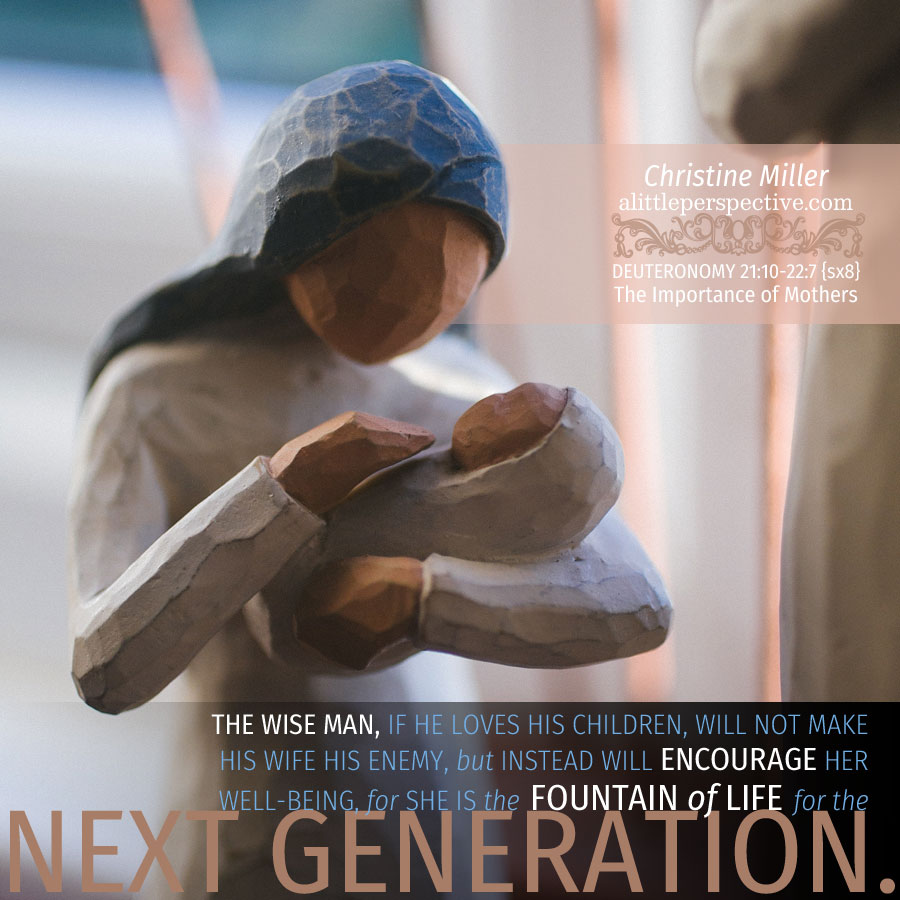Read Deuteronomy 21:10-22:7 at Bible Gateway.
Previously: deuteronomy 21:10-22:7, kind treatment of animals
(Please review the teaching tools of scripture, especially the Hebrew paragraph divisions and chiastic structures. The paragraphs marked by an “s” at their close are weak paragraphs, which indicate a change of facet but not a change of theme or topic. The paragraphs marked by a “p” at their close are strong paragraphs, which indicate the completion of a theme or topic. The paragraph divisions reveal the chiastic structures: narratives which zero in on the main point of the narrative at its center, like a bull’s eye at the center of a target. The main point is revealed, because the narrative elements before the main point (or central axis) are repeated after the central axis, in reverse order, while the central axis itself is not repeated.)
We are considering what each of the weak paragraphs in Deu 21:10-22:7, the first section explaining Do not commit adultery (Deu 21:10-23:14), have to teach us in the matter of adultery. The Hebrew paragraph divisions are:
Deu 21:10-14 {s} Treatment of the captive woman
Deu 21:15-17 {s} Do not reject the legitimate firstborn
Deu 21:18-21 {s} Treatment of the rebellious son
Deu 21:22-23 {s} Treatment of the executed criminal
Deu 22:1-3 {s} Treatment of a neighbor’s lost animals
Deu 22:4 {s} Treatment of a neighbor’s burdened animals
Deu 22:5 {s} Sanctity of gender distinction
Deu 22:6-7 {s} Treatment of a mother bird
So far we have seen the weak paragraphs teach us to preserve the sanctity of the marital union because from that union comes the next generation. Then we are to preserve the sanctity of the next generation, because their state will be reflected in the land. So ultimately, preserving the sanctity of the marital union is a foundation stone to preserving the integrity of society and nation. Next Torah teaches us to be kind and unselfish, as treating our mate with kindness is a key to preserving the unity of the marriage!
The next paragraph, Deu 22:5, teaches us to preserve gender distinctions. Ultimately, I believe this preserves the integrity of the next generation. So we see a repeat of an earlier theme.
The final paragraph, Deu 22:6-7, puzzled me for the longest time. Here it is:
“If a bird’s nest happens to be before you along the way, in any tree or on the ground, with young ones or eggs, with the mother sitting on the young or on the eggs, you shall not take the mother with the young; you shall surely let the mother go, and take the young for yourself, that it may be well with you and that you may prolong your days.” Deu 22:6-7
The implication is that the eggs are taken for food, but the mother shall not be taken for food or otherwise killed, when her young are taken for food. In other words, this command preserves the mother bird, because from her comes the next generation! If she survives, then the next generation does not perish; but if she perishes, then the next generation perishes with her.
Now of course God cares for birds! But as we have been learning, it is not only birds that God cares for. The Torah principle is, to ensure or preserve the next generation, we must ensure or preserve the life and well being of the mother!
So if there are issues between a man and his wife, the wise man, if he loves his children, will not make or treat his wife as his enemy, but will instead encourage her life and well being, for she is the fountain of life for the next generation.
Continued: deuteronomy 21:10-22:7 chiastic structure

















Leave a Reply